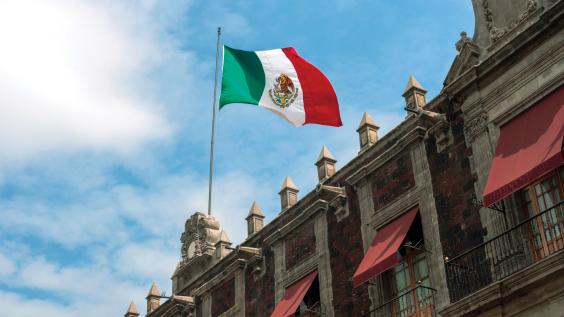Powerless: López Obrador’s Failed Electricity Reforms

Table of Contents
Author(s)
Tony Payan
Françoise and Edward Djerejian Fellow for Mexico Studies | Director, Center for the U.S. and MexicoMiriam Grunstein
Nonresident ScholarShare this Publication
- Print This Publication
- Cite This Publication Copy Citation
Miriam Grunstein and Tony Payan, “Powerless: López Obrador’s Failed Electricity Reforms” (Houston: Rice University’s Baker Institute for Public Policy, April 25, 2022).
Despite earlier promises not to do so, Mexico’s president, Andrés Manuel López Obrador, has sought to reverse the country’s 2013-2014 reforms to the country’s power sector. The president proposed a constitutional amendment to limit private participation in power generation to no more than 56% of the total; to cancel permits and contracts that his government found to be illegal, at his discretion; to eliminate key energy regulatory agencies; and to transform state-owned power and hydrocarbon companies into self-regulated state agencies. The effect of the constitutional change would have been to reduce competition in the power sector and return the federal power utility, or Comisión Federal de Electricidad (CFE), to a virtual monopoly power with all regulatory controls.
It remains a puzzle why the president did not present his proposal to change the constitution during the first three years of his six-year term, when he had the votes needed in Congress to pass such a bill. Regardless, he waited until this month, after the 2021 midterm election had deprived him of the right numbers in the lower house of Congress. It could be that he decided to wait because he first sought to limit private investment in electricity generation by executive order — although, in the end, his administrative actions to do so resulted in a court challenge.
As noted above, the key issue is that the president no longer has the votes needed in the lower house of Congress to change the constitution. Given this, the vote was first postponed from November 2021 to April 2022. The president hoped that he could win enough votes from the opposition to pass his proposal. This did not work, so the president’s party further delayed the bill’s discussion and vote to Easter Sunday in the hope that they could force and even threaten some members of the opposition to split from their parties and vote for the president’s reform. This effort was to no avail, and just minutes before midnight on Easter Sunday, the lower house defeated López Obrador’s proposal, dealing what is perhaps the greatest defeat of his political agenda.
To be sure, López Obrador can continue to obstruct private investment and especially investment in renewable energy — which he does not appear to favor — by administrative action, such as through permit denials and even the cancellation of existing contracts. This would further disincentivize investment in the sector and advance his ultimate goal: to make the national power utility, the Federal Electricity Commission (CFE), a de facto monopoly in the hands of the government. But without a constitutional change, such a policy can be more easily reversed in the next administration. Most companies that have already invested in the power sector in Mexico will likely go into a holding pattern until López Obrador is out of office in October 2024; some who may have been interested in investing in Mexico may either go elsewhere or also wait out the administration.
López Obrador’s political frustration was likely shared by Manuel Bartlett, the CEO of CFE, Mexico’s state-owned electricity company. Bartlett, who was accused of being the mastermind behind the electoral fraud of 1988’s presidential elections, cannot travel to the United States because he is also suspected of having participated in crimes against U.S. citizens. Still, it would seem that under the protection of the president, Bartlett’s state-led electricity sector will prevail, at least for the next two-and-a-half years as López Obrador wraps up his term in office.
Regardless of the substantive blow to the president’s energy agenda, Easter Sunday’s vote was important for several other reasons. Broadly speaking, the president’s agenda found its political limits. Second, the opposition parties — PAN, PRI, PRD and MC — were solidly united against the proposal. Only one member of the opposition sided with López Obrador’s party, but two members of his own coalition voted against the president’s proposal.
At the end of the day, the vote was an undeniable political defeat for López Obrador and his vision for the country. It also represents the first time the opposition was solidly united against him, both willing and able to stop his proposals in an extremely disciplined vote. Finally, the vote sets the stage for the 2024 presidential election, which may be much more competitive than many suspected just a few months ago. López Obrador cannot again stand again for election, and his party’s candidate will likely run against a very poor record in nearly every single policy issue that is ailing Mexico today.
This material may be quoted or reproduced without prior permission, provided appropriate credit is given to the author and Rice University’s Baker Institute for Public Policy. The views expressed herein are those of the individual author(s), and do not necessarily represent the views of Rice University’s Baker Institute for Public Policy.


